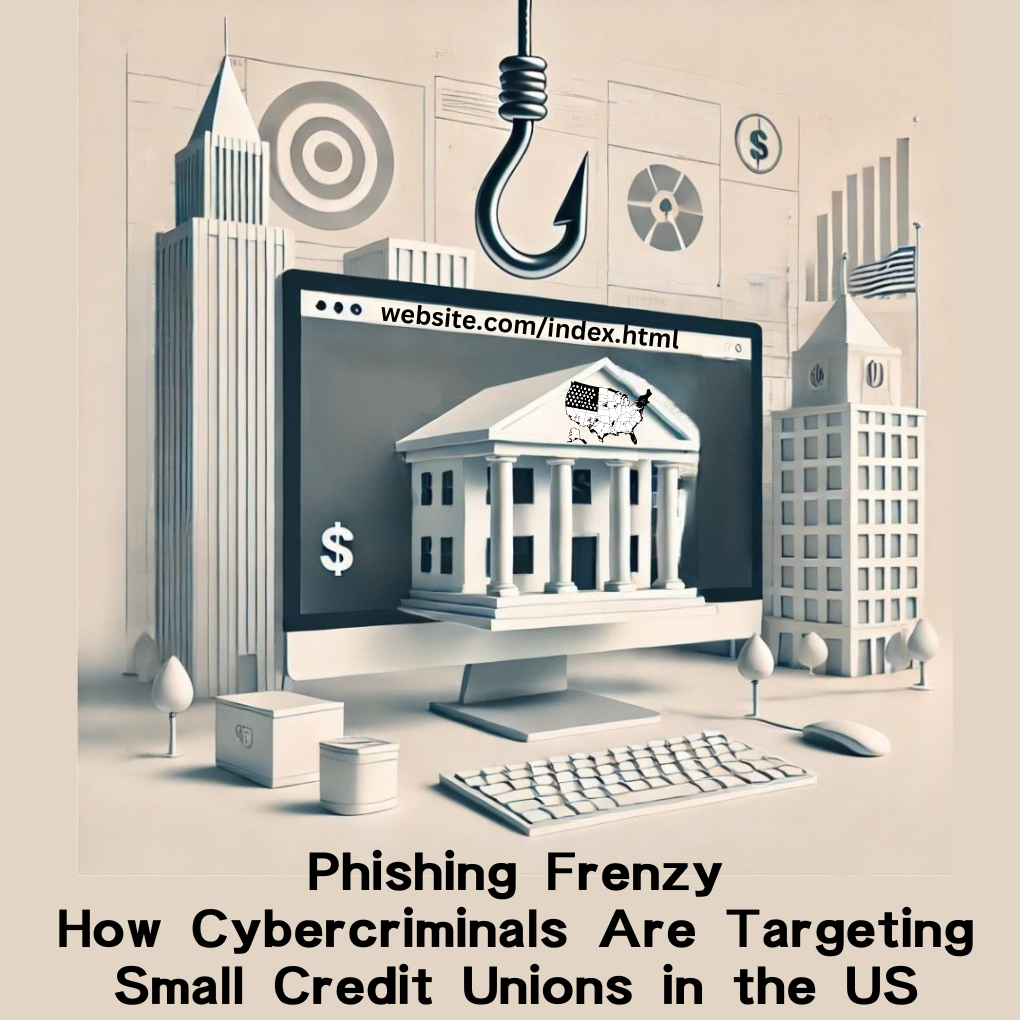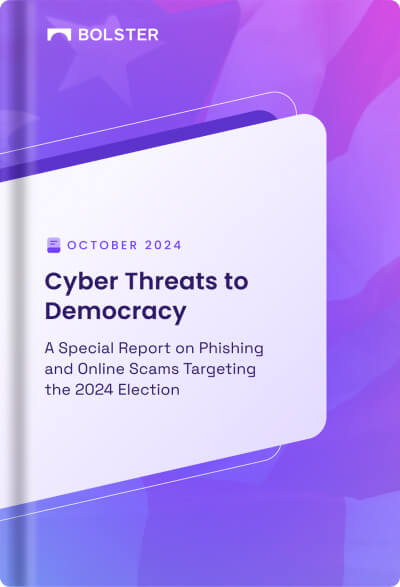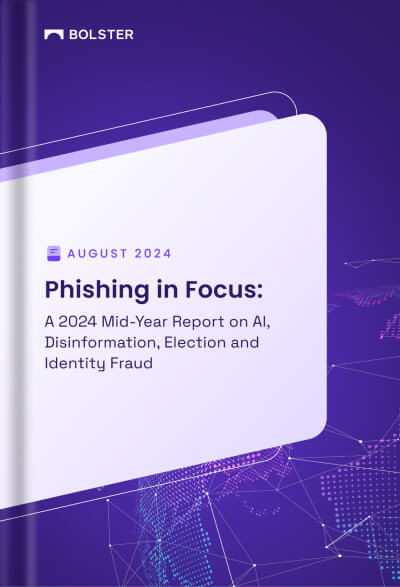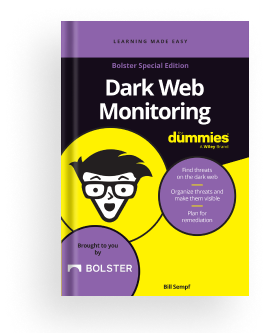In today’s increasingly digital world, cyber scams have become a significant threat to individuals and businesses alike. Throughout 2023, the Bolster Research Team saw hacking attempts and scam trends we both predicted and were surprised by from hackers worldwide. With the rapid advancement of technology, scammers have found new and creative ways to deceive unsuspecting businesses and consumers.
From phishing emails to fake online stores, the cyber threat landscape is constantly evolving, making it crucial for individuals to stay informed and take preventive measures.
In this year-in-review, we will discuss the top ten cyber scams of the year. We will examine each scam in detail, providing insights into how they operate and tips on how to avoid becoming a victim. By understanding these scams, you can better protect yourself and your personal information.
1. Fake Online Stores
One prevalent cyber scam is the proliferation of fake online stores. Scammers create professional-looking websites, offering attractive deals on popular products. However, once the customer makes a purchase, the scammer disappears, leaving the victim with no product and potentially stolen financial information.
To avoid falling victim to this scam, always verify the legitimacy of an online store before making a purchase, read reviews, and ensure they have secure payment options.
2. Online Gift Cards
The scam was at once thought to be specific to the holiday season, but this year we saw expanded gift card scams throughout all the months of the year. Gift cards have become a popular choice for presents, but scammers have found ways to exploit this holiday trend too.
Fake online gift card scams involve offering gift cards at highly discounted prices or as a reward for completing surveys. Once purchased or claimed, the victim realizes the gift card is fraudulent or non-existent.
It is important to purchase gift cards directly from reputable retailers or official websites to avoid being scammed.
3. Fake Shipment Notification via USPS/ UPS/ FedEx
Scammers often send fake shipment notification emails impersonating well-known courier services like USPS, UPS, or FedEx. These emails claim that the victim has a package waiting for delivery and urges them to click on a link to track it. However, the link leads to a malicious website that can infect the victim’s computer with malware or steal personal information. Always verify the legitimacy of a shipment notification by directly visiting the courier’s official website.
4. Phishing Emails with Fake Retail Offers
Phishing is a widespread scam type where scammers impersonate legitimate businesses to trick individuals into revealing their personal information. Phishing encompasses a wide-variety of attack types, but always is an overall common choice for hackers looking for a quick and easy technique to deploy.
Read More: 14 Phishing Statistics to Know for 2024
One common tactic is sending phishing emails that offer fake retail deals or ask the recipient to update their account information. These emails often contain realistic logos and formatting, making them appear genuine. To protect yourself, never click on links in emails or provide personal information unless you are certain of the sender’s legitimacy.
5. Social Media Ads
Social media platforms have become breeding grounds for cyber scams, including deceptive advertisements. These ads advertise discounted products, limited-time offers, or exclusive deals.
However, when users click on these ads or make a purchase, they may receive counterfeit products or never receive anything at all. Keep in mind that if an offer seems too good to be true, it probably is. Purchase products directly from trusted brands or official websites.
6. Counterfeit Products Sold on Social Media, Marketplaces, and Fake Websites
Scammers take advantage of the digital landscape by selling counterfeit or knockoff versions of popular products. They use social media, online marketplaces, and even dedicated websites to lure in unsuspecting customers.
These counterfeit products are often of inferior quality, and in some cases, they may even pose health and safety risks. Always purchase items from reputable sellers and websites, and be cautious of suspiciously low prices.
7. Stealing Packages
With the rise of online shopping, scammers have found an opportunity to steal packages from doorsteps and apartment complexes. They monitor delivery schedules and swipe packages shortly after they are delivered.
To prevent falling prey to this scam, consider using package tracking apps with delivery notifications, requiring signatures upon delivery, or having packages sent to secure locations.
8. Travel Package Scams
Travel package scams target individuals looking for affordable vacations or exclusive deals. Scammers create enticing offers with heavily discounted rates, promising luxurious accommodations and exciting activities.
However, once the payment is made, the victim is left with either no booking confirmation or subpar accommodations. To protect yourself, book travel packages directly through reputable travel agencies and read reviews from past customers.
9. Online Surveys for Giveaways
Scammers often use online surveys as a ruse to lure individuals into providing personal information. They claim participants have a chance to win exciting prizes or giveaways, but their real intent is to harvest personal data for malicious purposes.
Be cautious when participating in online surveys and only provide personal information to trusted sources. Legitimate giveaways are typically hosted by reputable organizations and not random websites.
10. Fake Charities
Unfortunately, scammers often try to exploit people’s goodwill by creating fake charities. They take advantage of natural disasters, holidays, or trending causes to solicit donations.
These fake charities may have professional-looking websites, convincing stories, and well-crafted emotional appeals. To ensure your donations reach legitimate organizations, conduct thorough research before giving, and consider donating directly to well-known charities.
Protecting Yourself and Your Business From Scams Going Into the New Year
From fake online stores to counterfeit products and phishing emails, scammers continuously find new ways to deceive unsuspecting victims. Staying informed and proactive is crucial to protecting yourself from these scams.
By understanding the top cyber scams of the year and taking necessary precautions, you can minimize the risk and protect yourself in the digital threat environment. Businesses can protect their brand and their company assets with AI Security technology to detect and takedown threats.
Bolster protects businesses from evolving phishing and cyber scam threats with our innovative and adaptive LLM models. Request a demo today to see what we can do to protect your business in the New Year!









